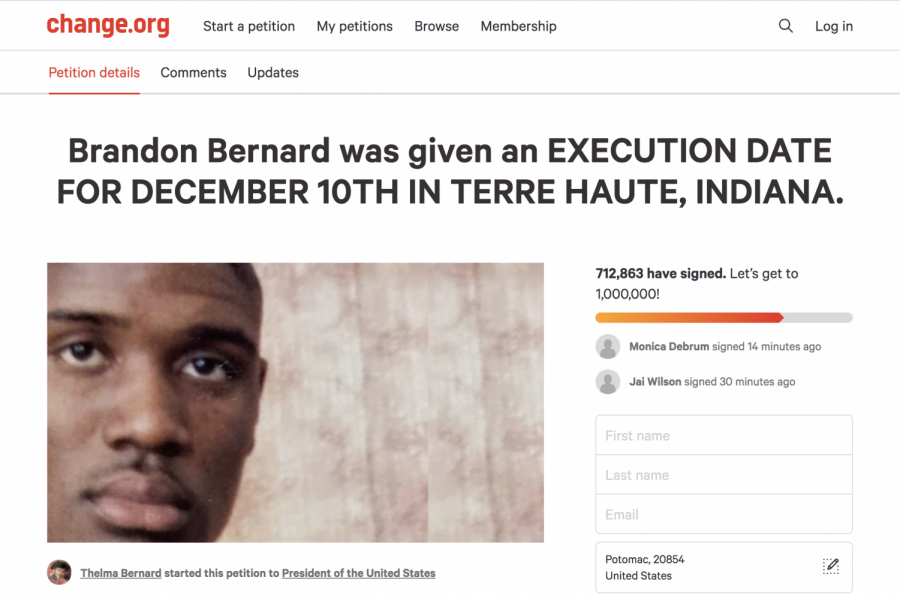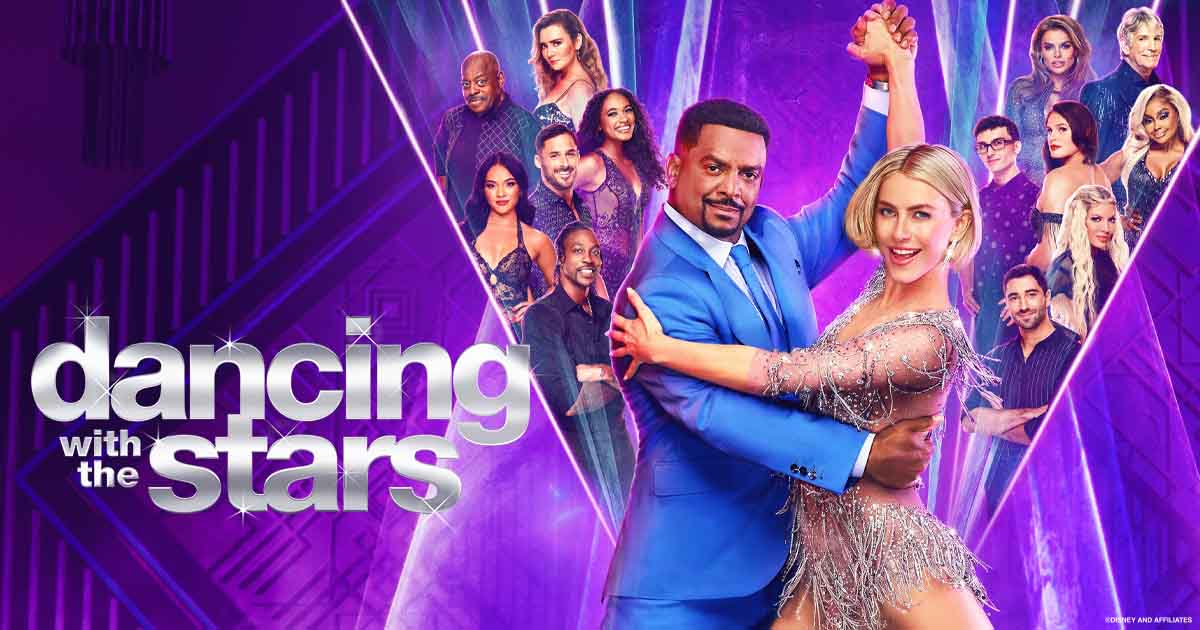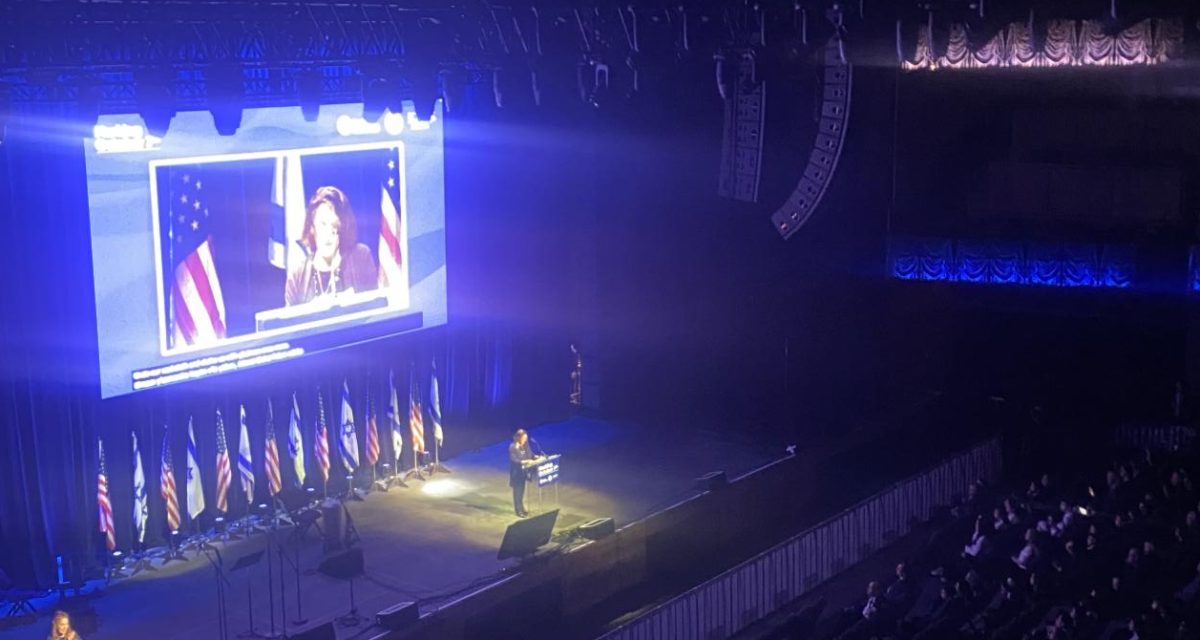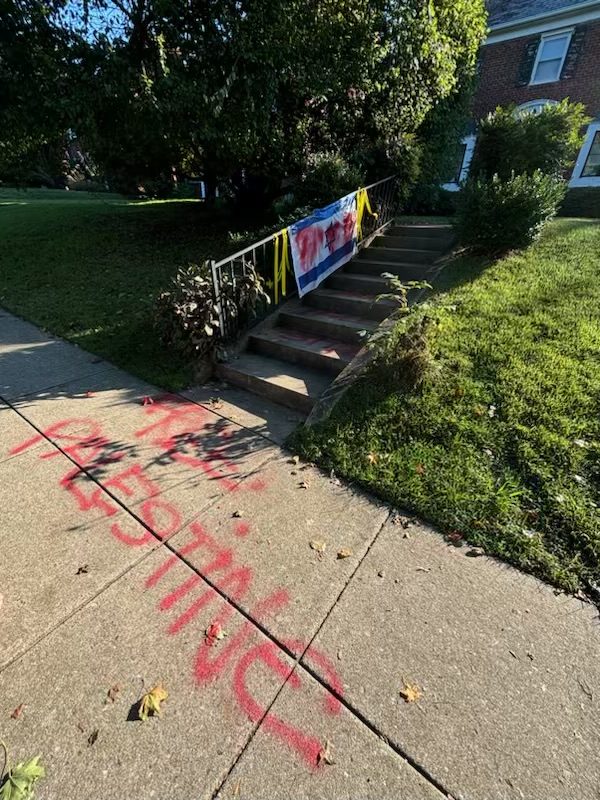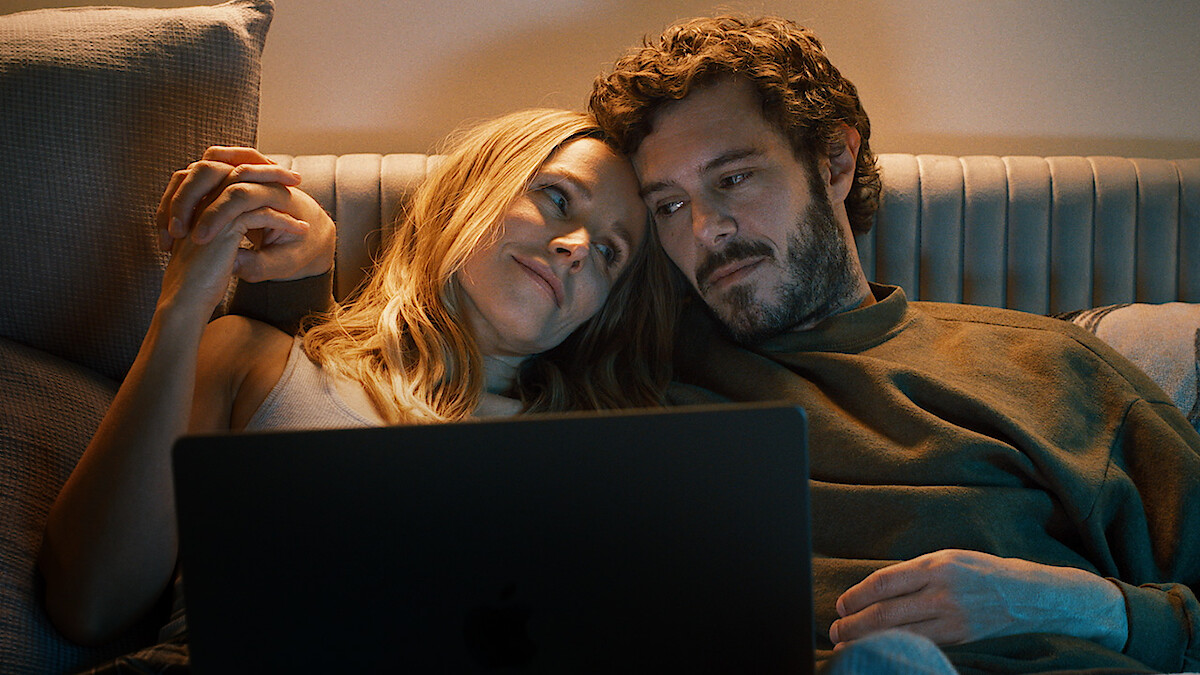Opinion: To create change, we need to do more after signing petitions
A Change.org petition for Brandon Bernard, whose execution caught the attention of the American public.
December 22, 2020
As I scroll through my Instagram feed, everyone has petitions in their bios calling for things like police reform, gun control and enforcing human rights. People sign and constantly promote these with the intention of creating change, but do they actually work?
There is no legitimate measure of success for petitions because in order to be effective, other organizations or those who initiate the petition must do more. However, Randy Paynter, founder and CEO of petition site Care2, told CNN that people who sign petitions are more likely to participate in the issues that the petitions target. They are also more likely to donate to nonprofits advocating for those issues. Additionally, Jason Del Gandio, a professor of communications and social movements at Temple University in Philadelphia, reported to The New York Times that a big benefit of petitions is that it raises awareness for a cause in an engaging way.
Critics often refer to the act of signing petitions as “slacktivism” because it doesn’t require any action beyond clicking a button and virtually signing your name. However, I believe it’s that accessibility that makes petitions so great. Many who wouldn’t normally partake in activism because they think it may require high-levels of commitment may partake in it because of how accessible these petitions are.
I recently signed a petition calling for Brandon Bernard to be taken off death row and receive a reduced sentence. He was still executed on Dec. 10. This does not necessarily mean petitions are a waste of time or misleading, and though this petition did not meet its ultimate goal, it got over 650,000 signatures and received national attention from news outlets such as CNN, BBC, NBC and The New York Times, ultimately bringing more awareness to the issue of federal executions at large.
No political official is going to change their position on a major policy because of a petition, even if it has received many signatures. But if you follow up with other forms of activism like phone calls, protests, letters to authoritative figures, community outreach or any other way to bring more attention to the issue, there may be more of a chance for the objective of the petition to become a reality in the future.
For example, in 2012, a petition was started for Ryan Anderson after he was told by his Boy Scout troop that he was not allowed to get the Eagle Scout Award because he was gay. This petition, along with other initiatives that were pushing for a change in the organization’s policy, received a lot of media attention and gathered hundreds of thousands of supporters. These efforts put pressure on the companies that gave money to Boy Scouts of America.
In 2013, the Boy Scouts of America ended its ban on openly gay youth and two years later, it even announced it would allow gay adults to be Scout leaders. Michael Jones, the managing director of campaigns at Change.org, said that in the case of the Boy Scouts, many who signed petitions later continued their efforts to remove the ban.
Change.org is one of many sites that allows its users to create petitions and share them. After you sign a petition on Change.org, the site encourages you to share it with others to continue raising awareness. We the People, a petition website that is government-run, allows its users to directly contact the White House. If a petition gathers 100,000 signatures in 30 days, We the People will review it and make sure it gets in front of the appropriate policy experts and issue an official response.
With petitions, immediate results aren’t realistic, and not every problem is going to get fixed. But if petitions have clear goals with specific steps on what can be taken to achieve them, they are not only bringing more awareness to the issue, but they are providing an accessible outlet in which people can find ways to help, ultimately helping us see change in the future.


